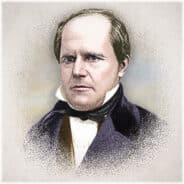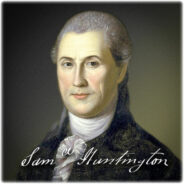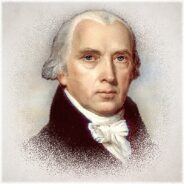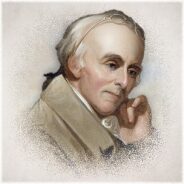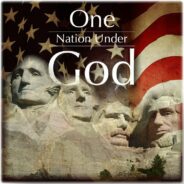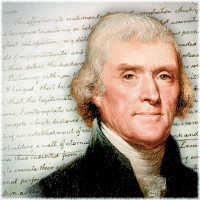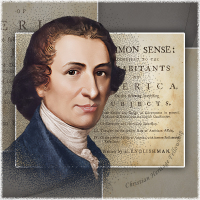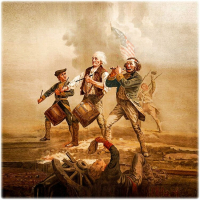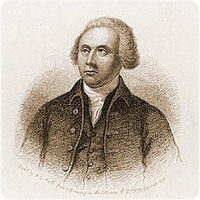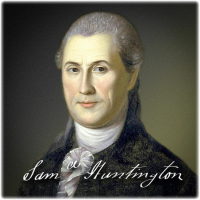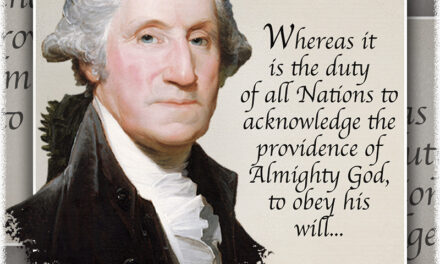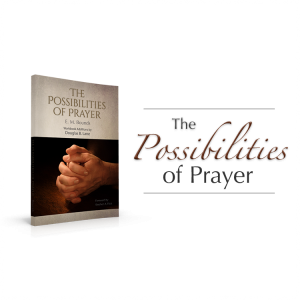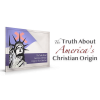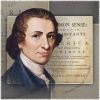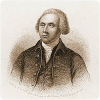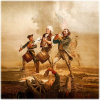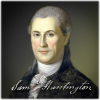March 20, 1781: Seventh Congressional Fasting Proclamation
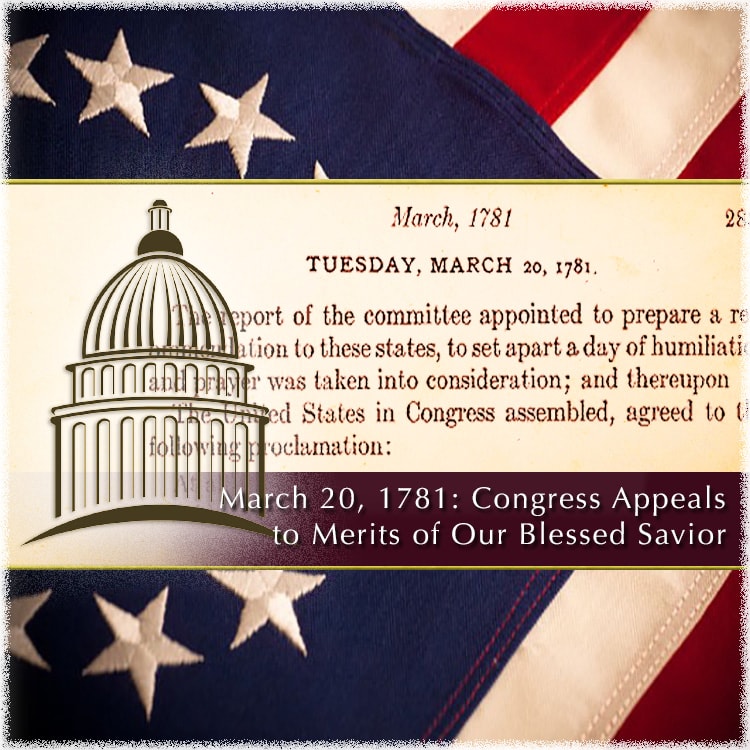
There is no historical evidence to support the myth that America's Founding Fathers were Deists or irreligious. Rather, just the opposite is true. Not only is the historical record replete with the Christian character of the English colonies that gave birth to America, but from the beginning of America as an independent nation following the War of Independence, all historical evidence points to the fact that the Founding Fathers accorded a place of influence to the principles of Christianity, though no single denomination was granted the right to dominate the life of government at the national level. The influence of Christianity upon American government during both the colonial era and the rise of America as an independent nation was affirmed by Congress many years ago.seventh Congressional Fasting Proclamation
On March 27, 1854, James Meacham, a professor, minister, and member of the House of Representatives from Vermont, submitted a report from the Judiciary Committee to the full House.[1] In it, he specifically noted the formative influence Christianity exercised over the origin of America—from the colonial to the national eras:seventh Congressional Fasting Proclamation
At the adoption of the Constitution, we believe every State—certainly ten of the thirteen—provided as regularly for the support of the Church as for the support of the Government: one, Virginia, had the system of tithes. Down to the Revolution, every colony did sustain [the Christian] religion in some form. It was deemed peculiarly proper that the religion of liberty should be upheld by a free people. Had the people, during the Revolution, had a suspicion of any attempt to war against Christianity, that Revolution would have been strangled in its cradle. At the time of the adoption of the Constitution and the amendments, the universal sentiment was that Christianity should be encouraged, not any one sect. Any attempt to level and discard all religion would have been viewed with universal indignation.[2]
The minutes of the Continental Congress also record the place of influence accorded by the Founding Father's to Christianity. Throughout the years of struggle for independence, Congress issued sixteen spiritual proclamations calling upon all Thirteen States set aside days to fast, pray, and give thanks to God. Below follows a brief description on the seventh fasting proclamation issued by Congress on March 20, 1781.
The subject addressed in this article is discussed at greater length in When Congress Asked America to Fast, Pray, and Give Thanks to God. Christian Heritage Fellowship would be honored to work with individuals, businesses, churches, institutions, or organizations to help communicate the truth concerning the positive influence of the Christian faith by providing bulk pricing: Please contact us here... To purchase a limited quantity of this publication, please click: Purchase here...
Article Contents
As the American War of Independence prepared to enter its sixth year of armed conflict in the spring of 1781, Samuel Huntington of Connecticut provided executive leadership as the seventh President of Congress. Assuming the presidency on September 28, 1779, Huntington continued in that office until July 9, 1781. At this point in American history, the length of term for this office varied greatly and was entirely arbitrary—usually depending upon the personal demands placed upon the president. As son-in-law of a prominent Christian minister, Huntington presided over four congressional spiritual proclamations—the March 1781 proclamation being his fourth and last. No other president of Congress presided over the passage of as many proclamations as Samuel Huntington. As he prepared to leave office, the appearance of a new member to Congress signaled the rise of one of the most distinguished of America's Founding Fathers. In March of 1781, that new member to Congress was called upon to help prepare the "humiliation, fasting and prayer" proclamation for that spring.
Madison and the Spring Proclamation
To draft the spring proclamation for 1781, Congress called upon three of its members. Of those three, one is of particular interest given the political stature he attains in the years to come. Having served in Congress for nearly a year,[3] James Madison of Virginia was called upon to serve on the committee to write the draft for the "humiliation, fasting and prayer" proclamation, and for this responsibility, James Madison had received adequate training from Dr. John Witherspoon at Princeton.
James Madison, Jr. was born into "independent and comfortable circumstances" in Virginia. His formal schooling was obtained through Donald Robertson and Rev. Thomas Martin in his home parish in Orange County. In 1769, he entered Princeton where he distinguished himself in the studies of history and government. Upon graduation in 1771, he remained another year studying Hebrew and ethics under President John Witherspoon, president of the college and signer of the Declaration of Independence. Under Witherspoon's influence, Madison gave serious consideration to entering the Christian ministry. Upon his return to Virginia, Madison continued his theological studies, but it was his political interests that were to consume most of his life's energy.[4]
His extensive political life arose out of a humble origin. In 1774, he accepted a position on the local Committee of Safety, which was a pro-revolution group throughout the colonies that administered the efforts of the local militia. Two years later in 1776, he was elected to the Virginia convention to compose the state's first constitution, and in 1780 was elected as a delegate to the Continental Congress. In 1787, he was one of the representatives from Virginia to the Constitutional Convention, earning for himself the reputation of "master-builder of the constitution,"[5] and he was elected to the House of Representatives to the first session of Congress in 1789. Having invested deeply in the composition of the proposed Constitution, Madison joined efforts with Alexander Hamilton and John Jay to write The Federalist Papers, which was arguably the most important work in promoting the passage of the Constitution by the states. And, after serving as President Thomas Jefferson's Secretary of State (1801–1809), he served as America's fourth President (1809–1816).
Given Madison's influence in both the writing and adoption of the Constitution, secularists have looked upon him as one of the most important Founding Fathers to characterize as a deist, or in the least, a deistic or anti-Christian sympathizer. One secular author writes, "As an adult, Madison paid little attention to religious matters. Though most historians have found little indication of his religious leanings after he left college, some scholars indicate he leaned toward deism."[6] Because most secularists are fearful of reading original documents, they often content themselves by reading each other's opinions. The facts are that James Madison promoted the Christian religion.
At the federal level, various historical records demonstrate his support for Christianity. Following the ratification of the Constitution by the states, Madison was elected to the House of Representatives from Virginia (1789). In the first session of the House of Representatives, he was appointed to the committee composed of members from both the Senate and the House to administer the chaplains of Congress. His appointment to this committee was recorded in the Proceedings of Congress:
The Speaker laid before the House a letter from Oliver Ellsworth, Esq. a member of the Senate, stating the appointment of a committee of that House to confer with a committee to be appointed on the part of this House, in preparing a system of rules to govern the two Houses in cases of conference, and to regulate the appointment of Chaplains.
Whereupon, Messrs. Boudinot, Sherman, Tucker, Madison, and Bland, were elected by ballot for that purpose.[7]
Though his work with spiritual proclamations at the federal level began while serving in the Continental Congress in March 1781, it was not his last. As President, Madison issued four spiritual proclamations: July 9, 1812 – Humiliation and Prayer Proclamation;[8] July 23, 1813 – Humiliation and Prayer Proclamation;[9] November 16, 1814 – Fasting and Prayer Proclamation;[10] and his March 4, 1815 – Thanksgiving Proclamation.[11] All four proclamations have been collected and arranged in the published form of this work.
In early 1813, Congress approved and President Madison signed a federal bill providing economic aid to the Philadelphia Bible Society for the purpose of the mass distribution of the Bible. This Bible society was the first in America, being founded on December 12, 1808. It had been started by one of the first chaplains to the Continental Congress, Bishop William White, and Founding Father, Dr. Benjamin Rush—signer of the Declaration of Independence. The records of Congress clearly relate the support of Congress for the Philadelphia Bible Society—and subsequent signing of legislation by President Madison:
An Act for the relief of the Bible Society of Philadelphia.
Be it enacted, andc., that the duties arising and due to the United States upon certain stereotype plates, imported during the last year into the port of Philadelphia, on board the ship Brilliant by the Bible Society of Philadelphia, for the purpose of printing editions of the Holy Bible, be and the same are hereby remitted, on behalf of the United States, to the said society: and any bond or security given for the securing of the payment of the said duties shall be cancelled.
Approved, February 2, 1813.[12]
Contrary to the misinformation of those seeking to deny Americans their spiritual heritage, Founding Fathers encouraged the spread of Christianity, though no single denomination was sanctioned as a state church at the federal level.
Just as President Madison was a public advocate of Christianity, his personal and private documents convey what his public acts also suggest. Notes in his Bible and other sources of personal communication make it apparent that he affirmed the deity of Christ and was orthodox in other respects. And, both public and private papers relate that President Madison was not ashamed of his Christian faith.[13]
Committee Composes Proclamation
When Congress appointed the committee to write the proclamation for the March 1781 "day of humiliation, fasting and prayer," it invited James Madison to be part of that committee. With regard to the contemporary debate concerning "Church and state," those who marginalize Christianity do so against the example of the man they often look to as their patron saint. James Madison began his advocacy of Christianity from the standpoint of the "federal" government in March of 1781—when selected to be a member of the spiritual proclamation committee .
WEDNESDAY, MARCH 14, [1781]
On motion of Mr. [Artemas] Ward, seconded by Mr. [James] Duane:
Ordered, That a committee of three be appointed to prepare a recommendation to the states for setting apart a day of humiliation, fasting and prayer:
The members, Mr. [James] Duane, Mr. [Jesse] Root, Mr. [James] Madison.[14]
As was often the case, the committee prepared the draft in about a week after being charged with its duty, and sent it to Congress:
TUESDAY, MARCH 20, 1781
The report of the committee appointed to prepare a recommendation to these states, to set apart a day of humiliation and prayer was taken into consideration; and thereupon, The United States in Congress assembled, agreed to the following proclamation:
At all times it is our duty to acknowledge the over-ruling providence of the great Governor of the universe, and devoutly to implore his divine favor and protection. But in the hour of calamity and impending danger, when by fire and the sword, by the savages of the wilderness, and by our own domestics, a vindictive enemy pursues a war of rapine and devastation, with unrelenting fury, we are peculiarly excited, with true penitence of heart, to prostrate ourselves before our great Creator, and fervently to supplicate his gracious interposition for our deliverance.
The United States in Congress assembled, therefore do earnestly recommend, that Thursday the third day of May next, may be observed as a day of humiliation, fasting and prayer, that we may, with united hearts, confess and bewail our manifold sins and transgressions, and by sincere repentance and amendment of life, appease his righteous displeasure, and through the merits of our blessed Saviour, obtain pardon and forgiveness: that it may please him to inspire our rulers with wisdom and uncorruptible integrity, and to direct and prosper their councils: to inspire all our citizens with a fervent and disinterested love of their country, and to preserve and strengthen their union: to turn the hearts of the disaffected, or to frustrate their devices: to regard with divine compassion our friends in captivity, affliction and distress, to comfort and relieve them under their sufferings, and to change their mourning into grateful songs of triumph: that it may please him to bless our ally, and to render the connection formed between these United States and his kingdoms a mutual and lasting benefit to both nations: to animate our officers and forces by sea and land with invincible fortitude, and to guard and protect them in the day of battle, and to crown our joint endeavors for terminating the calamities of war with victory and success: that the blessings of peace and liberty may be established on an honorable and permanent basis, and transmitted inviolate to the latest posterity: that it may please him to prosper our husbandry and commerce, and to bless us with health and plenty: that it may please him to bless all schools and seminaries of learning, and to grant that truth, justice and benevolence, and pure and undefiled religion, may universally prevail.
And it is recommended to all the people of these states, to assemble for public worship, and abstain from labour on the said day.[15]
The following proclamation was sent from Congress to all of the states with the recommendation that the designated day of May 3, 1781 be set aside as a day when "all the people of these states, to assemble for public worship, and abstain from labour on the said day."
Rather than push their Christian faith from the public arena, members of the Continental Congress were urging the citizens of their fledgling nation to earnestly seek the favor and blessings offered through "our blessed Saviour." Diligent study of original documents from the founding era will clearly show that many contemporary judges and members of American jurisprudence are insincere students of that in which they claim a high degree of proficiency! Let them be replaced with those who are truly conversant with the historical facts which are recounted in primary materials!
America deserves to know its true heritage.
Please contribute today!
[1] Journal of the House of Representatives of the United States: Being the First Session of the Thirty-Third Congress, Begun and Held at the City of Washington, December 5, 1853 (Washington: Robert Armstrong, 1853), 569.
[2] Benjamin Morris, Christian Life and Character of the Civil Institutions of the United States, Developed in the Official and Historical Annals of the Republic (Philadelphia: George W. Childs, 1864), 320-21.
[3] Madison presented his credentials and was seated in Congress on March 20, 1780. Journals of the Continental Congress, 1774-1789, 34 vols. (Washington, D.C.: Government Printing Office, 1904-1937), 16:269.
[4] Dictionary of American Biography, s.v. "Madison, James."
[5] Dictionary of American Biography, s.v. "Madison, James."
[6] James Madison, "Detached Memoranda, Ca. 31 January 1820," National Archives, February 16, 2018; https://founders.archives.gov/documents/Madison/04-01-02-0549.
[7] The Debates and Proceedings in the Congress of the United State; with an Appendix, Containing Important State Papers and Public Documents and All the Laws of a Public Nature, 42 vols. (Washington [D.C.] : Printed and Published by Gales and Seaton, 1855), 1:109.
[8] A Compilation of the Messages and Papers of the Presidents, 1789-1897, 20 vols. (New York: Bureau of National Literature, Inc., 1896), 2:498.
[9] Messages and Papers of the Presidents, 2:517-518.
[10] Messages and Papers of the Presidents, 2:543.
[11] Messages and Papers of the Presidents, 2:545-546.
[12] Debates and Proceedings in the Congress, 12th Congress, 2nd Session; February 2, 1813, 1325.
[13] See William J. Federer, America's God and Country: Encyclopedia of Quotations (St. Louis, MO: Amerisearch, 2000), 409-413.
[14] Journals of the Continental Congress, 19:257-258.
[15] Journals of the Continental Congress, 19:284-286.

